Fan Zhendong and Chen Meng's withdrawal from the world rankings has caused quite a stir, with CCTV News Channel devoting a full eight minutes to discussing the matter, which has really stirred up a hornet's nest.
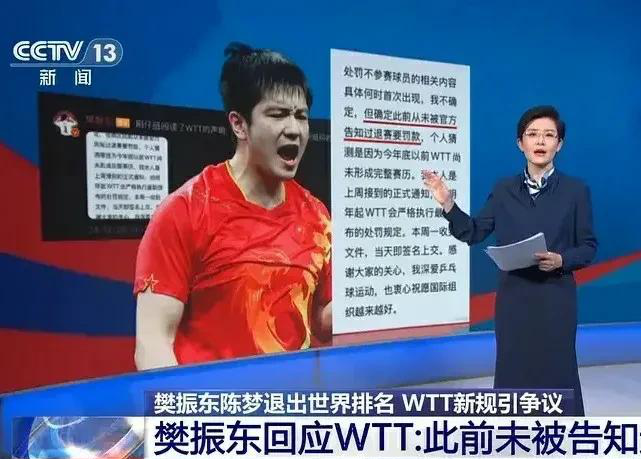
The fines imposed on national table tennis players have left everyone uneasy. After Fan Zhendong and Chen Meng withdrew from the world rankings, many people speculated about the reasons behind it. To put it bluntly, the WTT rules are too domineering. Athletes who do not participate in competitions face a fine of $5,000, which is unbearable for anyone.
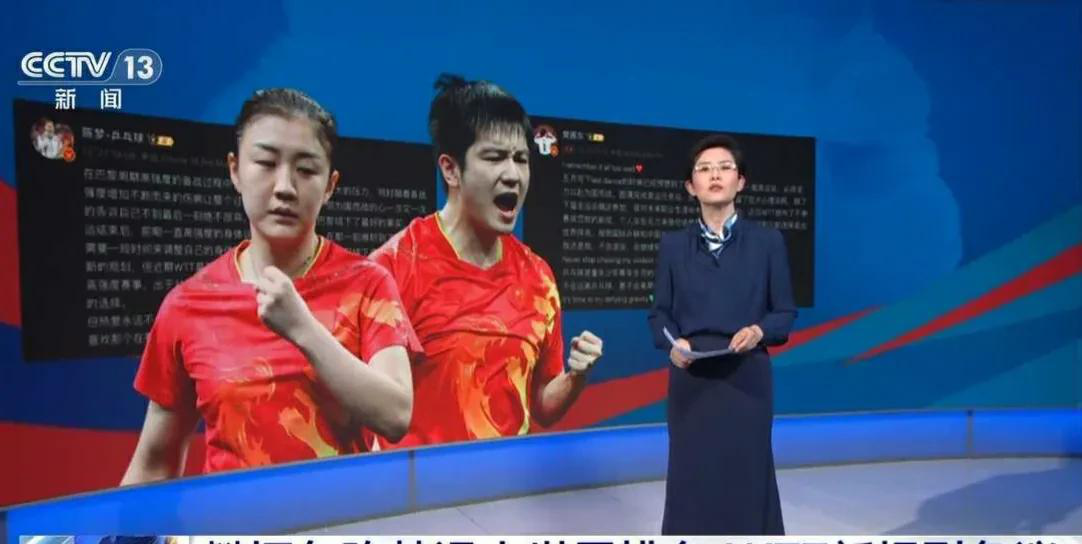
Athletes' physical conditions change every day, and sometimes they are truly plagued by injuries. However, to avoid being fined, they have no choice but to tough it out and compete, resulting in subpar match quality under such circumstances.

CCTV host Wang Ning is right; everything should be centered around the athletes. However, in reality, athletes within this system are akin to exploited laborers with no say.
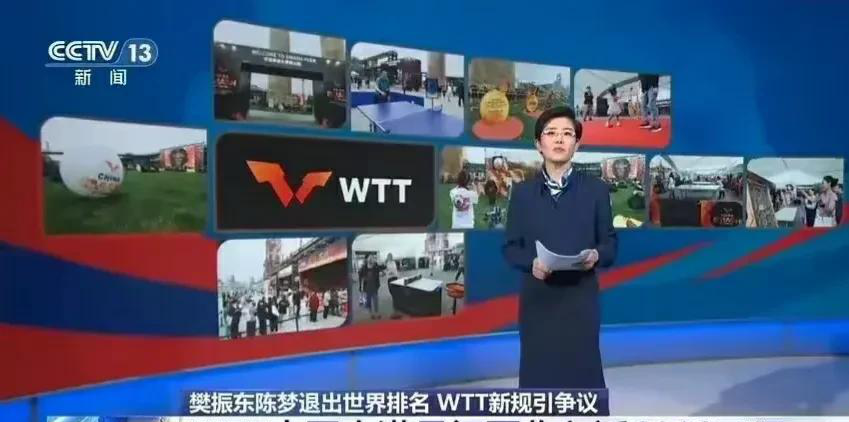
WTT, registered in the Cayman Islands, is all about making money. They do not care about the well-being of the athletes, as long as they can make a profit.
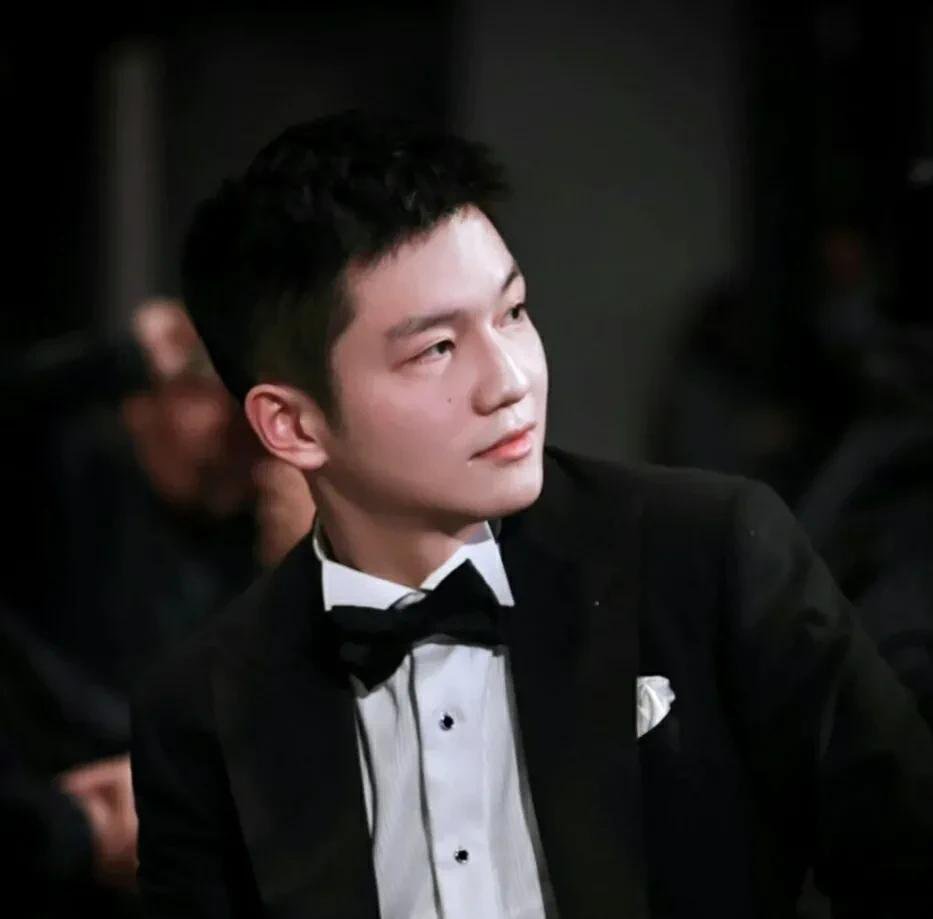
The ticket revenue for the Beijing Grand Slam alone amounts to 60 million yuan, not including other advertising income and sponsorship fees. Yet, the prize money for the competition is only over 10 million yuan, which is a huge disparity.

Why don't table tennis athletes enjoy the same treatment as tennis players, who have exemptions from participating in certain events? Both are professional sports, yet the difference in treatment is too great.
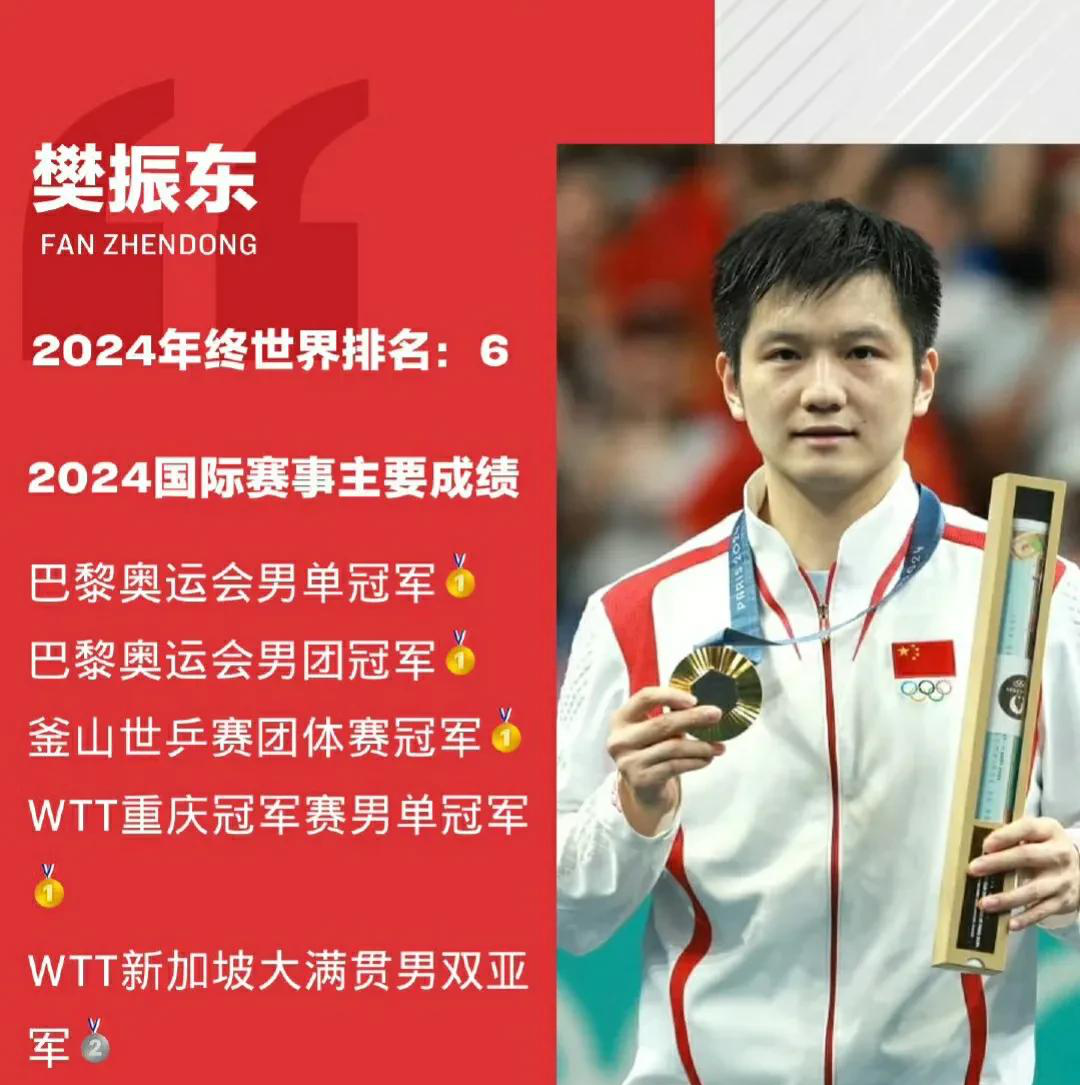
Some netizens are correct; a sports union should be established to protect the rights of athletes. Otherwise, athletes will always be at a disadvantage.
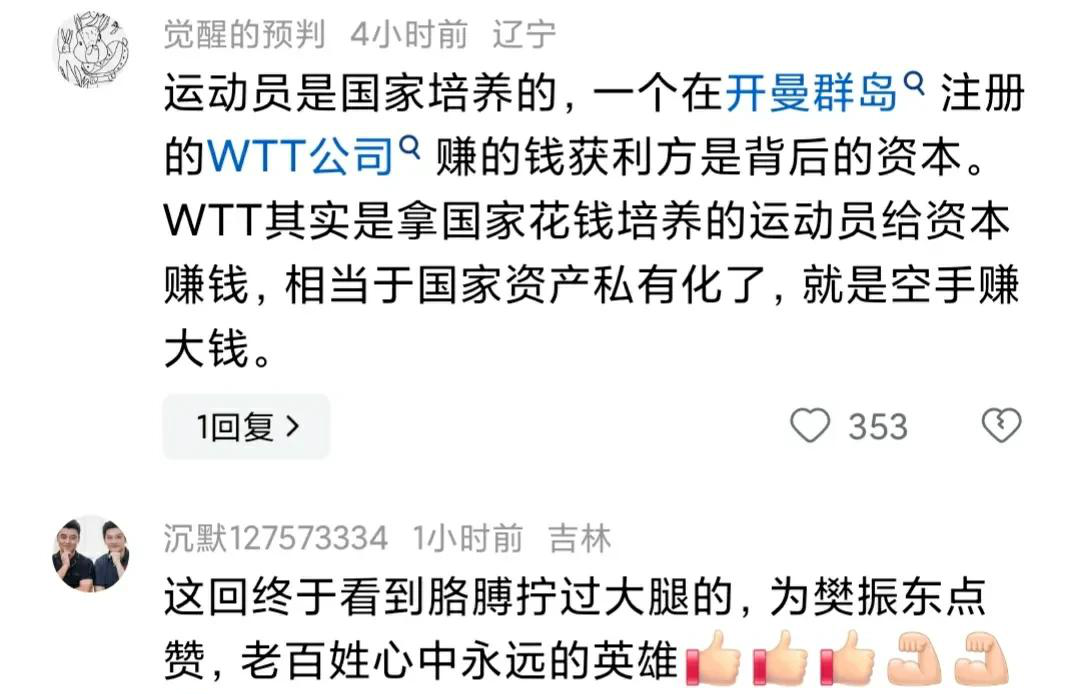
Sports competitions are becoming increasingly commercialized, but we cannot overlook the basic rights of athletes due to commercialization. After all, without athletes, competitions cannot take place.
Fan Zhendong and Chen Meng's decision this time was actually very courageous. They expressed their protest against unreasonable systems through their actions, and such behavior deserves respect.
The career span of an athlete is already short, and if they are forced to compete while injured, their career lifespan will be even shorter, which is grossly unfair to the athletes.
The commercialization of sports competitions is an inevitable trend, but a reasonable revenue distribution mechanism must be established to prevent capital from dominating.
Athletes need more say; they should be able to participate in the formulation of rules instead of passively accepting unreasonable regulations.
The current issue is the lack of an independent third-party institution to oversee the operation of these commercial events, leading to a severe imbalance in the distribution of interests.
We can learn from the tennis model by granting top athletes certain exemptions from participation, which would both protect the athletes and maintain the commercial value of the competitions.
Establishing a scientific schedule arrangement mechanism is also crucial, ensuring that athletes have sufficient rest and recovery time to guarantee the quality of the matches.
Most importantly, a healthy commercial operating model needs to be established, benefiting athletes, event organizers, and spectators alike. This is the correct direction for the development of sports.